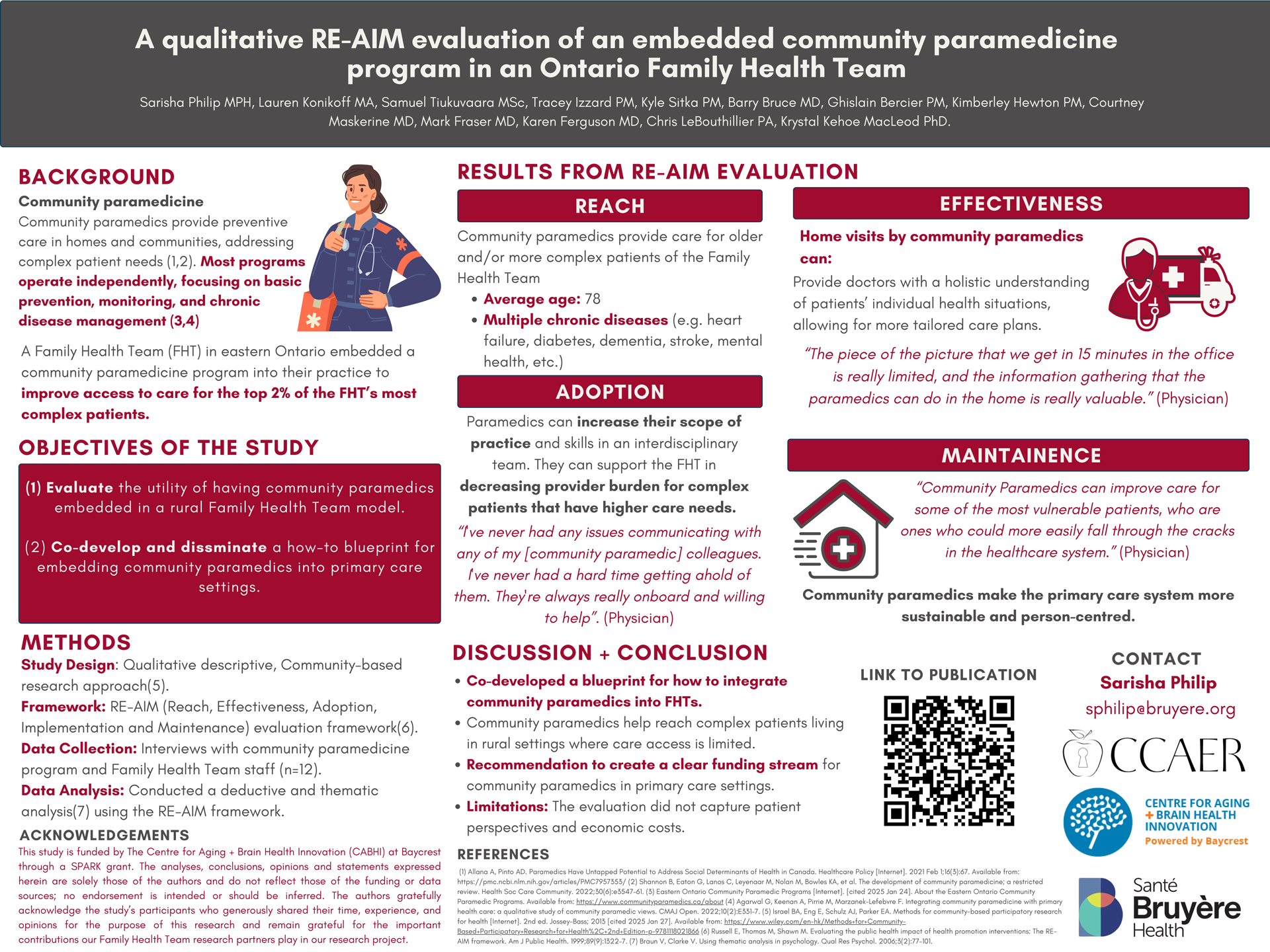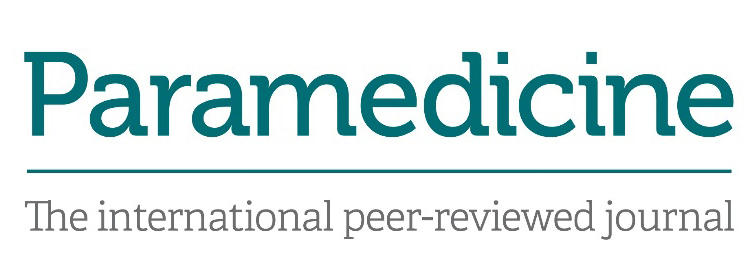 |
|
Title: A qualitative RE-AIM evaluation of an embedded community paramedicine program in an Ontario Family Health Team Introduction: In 2014, a rural Family Health Team (FHT) in Ontario, Canada embedded a community paramedicine program into their primary care practice to improve care for their complex patients. Community paramedics are health care professionals who extend their role beyond emergency services to provide primary care in home and community settings. Objective: The study aims to evaluate the utility of having community paramedics embedded in a rural FHT. Methods: In this evaluation, we conducted 12 semi-structured interviews with the community paramedicine team (n=4) and other staff from the FHT (n=8), including physicians, nurse practitioners, allied health professionals, and the program director. We conducted a deductive thematic analysis using the RE-AIM framework. This allowed us to examine the strengths and challenges of incorporating community paramedics in this primary care model in a rural setting. Conclusion: Our findings highlighted community paramedics' role in supporting high-needs older patients with multiple comorbidities, particularly in rural settings where access to healthcare is often limited. To support the broader adoption of this model, we developed a “how to” blueprint for embedding community paramedics in primary care settings to address the care needs of high-risk older adults that was distributed to all FHTs across Ontario. |
Sarisha Philip, MPH, is a Research Coordinator with the Centre for Care Access and Equity Research Team at the Bruyère Health Research Institute. She leads two portfolios. The first focuses on improving care for patients with heart failure who are at risk




